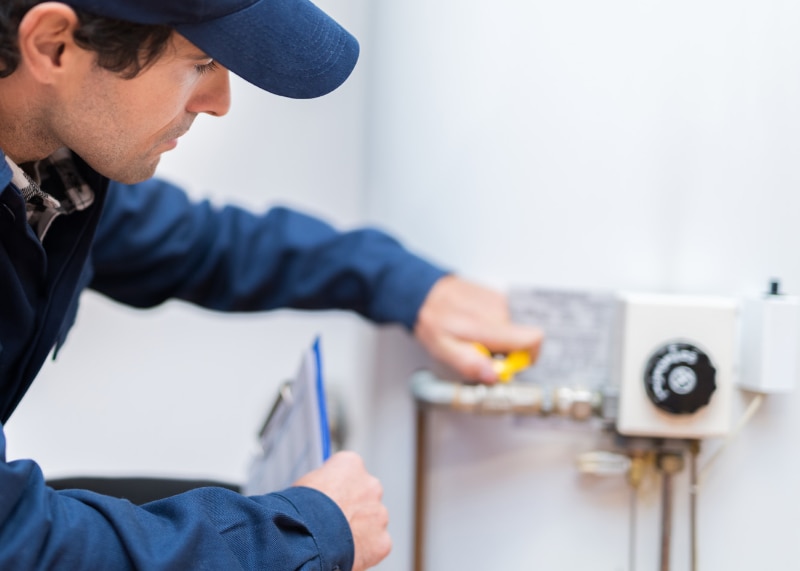Identifying Regular Water Heater Issues
Identifying Regular Water Heater Issues
Blog Article
They are making several great annotation on Common Problems with Tank Water Heaters in general in this post in the next paragraphs.

Visualize starting your day without your regular hot shower. That already establishes a bad tone for the rest of your day.
Every house requires a dependable water heater, but just a couple of know just how to take care of one. One easy way to maintain your water heater in leading form is to look for mistakes regularly and also fix them as quickly as they appear.
Remember to switch off your water heater before sniffing about for mistakes. These are the hot water heater mistakes you are more than likely to run into.
Water also hot or as well cool
Every hot water heater has a thermostat that determines how warm the water gets. If the water coming into your residence is as well hot in spite of establishing a convenient optimum temperature level, your thermostat may be damaged.
On the other hand, too cold water might result from a stopped working thermostat, a broken circuit, or improper gas circulation. For instance, if you use a gas water heater with a broken pilot burner, you would certainly obtain cold water, even if the thermostat is in best condition. For electrical heating systems, a blown fuse might be the wrongdoer.
Inadequate hot water
Hot water heater come in lots of sizes, relying on your hot water needs. If you lack hot water before everybody has actually had a bathroom, your water heater is too little for your family size. You need to consider setting up a larger water heater tank or opting for a tankless water heater, which uses up less area as well as is extra durable.
Strange noises
There go to least five kinds of noises you can learn through a hot water heater, but the most typical interpretation is that it's time for the hot water heater to retire.
First off, you need to know with the typical sounds a hot water heater makes. An electrical heater may appear various from a gas-powered one.
Standing out or banging sounds typically mean there is a piece of sediment in your containers, as well as it's time to cleanse it out. On the other hand, whistling or hissing sounds might just be your shutoffs letting some stress off.
Water leaks
Leakages can come from pipelines, water connections, valves, or in the worst-case circumstance, the tank itself. Gradually, water will corrode the container, and also find its way out. If this happens, you need to change your hot water heater immediately.
Nevertheless, before your modification your entire storage tank, be sure that all pipelines are in area which each shutoff works flawlessly. If you still need help recognizing a leak, call your plumber.
Rust-colored water
Rust-colored water indicates among your hot water heater components is worn away. It could be the anode pole, or the container itself. Your plumber will certainly have the ability to identify which it is.
Lukewarm water
Despite how high you established the thermostat, you won't get any type of hot water out of a heating system well past its prime. A water heater's efficiency might lower with time.
You will additionally obtain lukewarm water if your pipes have a cross link. This implies that when you activate a faucet, hot water from the heating system moves in together with normal, cold water. A cross connection is easy to area. If your warm water taps still follow shutting the hot water heater valves, you have a cross link.
Discoloured Water
Rust is a major root cause of unclean or discoloured water. Rust within the water tank or a stopping working anode pole could create this discolouration. The anode pole protects the container from rusting on the within and also must be checked annual. Without a rod or a properly functioning anode pole, the warm water swiftly wears away inside the storage tank. Contact an expert hot water heater professional to identify if changing the anode rod will repair the trouble; otherwise, replace your water heater.
Conclusion
Ideally, your water heater can last ten years prior to you need a modification. However, after the 10-year mark, you may experience any of these faults much more on a regular basis. At this moment, you must include a new hot water heater to your budget.
How To Troubleshoot 3 Common Water Heater Problems in Twin Cities
The Water Heater Is Leaking
A leaky cold water inlet valve A loose pipe fitting A leaky temperature and pressure relief valve A corroded anode rod A cracked tank Turn Off Your Water Heater:
Shut off your gas water heater by turning the gas valve on the unit to the “OFF” position. Shut off your electric water by switching its power off at your electrical panel. Look for a two-pole breaker labeled “water heater” and turn it to the “OFF” position. Move the ball valve connected to the water heater to be perpendicular to the piping at a 90° angle. Look for the Leak:
Depending on whether the water is coming from the tank's top or bottom, you’ll want to look for the leak in different locations.
If the leak comes from the top of the tank, carefully look for water escaping from the cold water inlet valve or loose pipe fittings. Rusted hot and cold water valves can have loose connections with the tank, with water leaking out of them.
https://mspplumbingheatingair.com/blog/how-to-troubleshoot-3-common-water-heater-problems
We had been made aware of that editorial on Common Problems with Your Home Water Heater from a good friend on a different web blog. Sharing is caring. Helping others is fun. Thanks for your time spent reading it.
Immediate resolution offered. Report this page